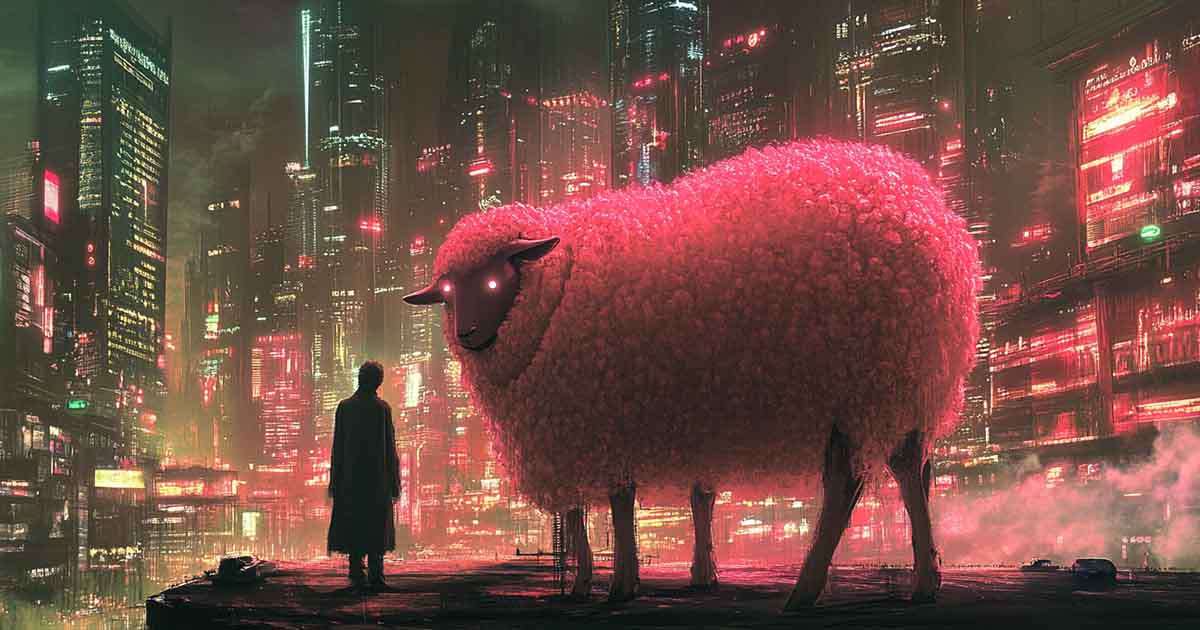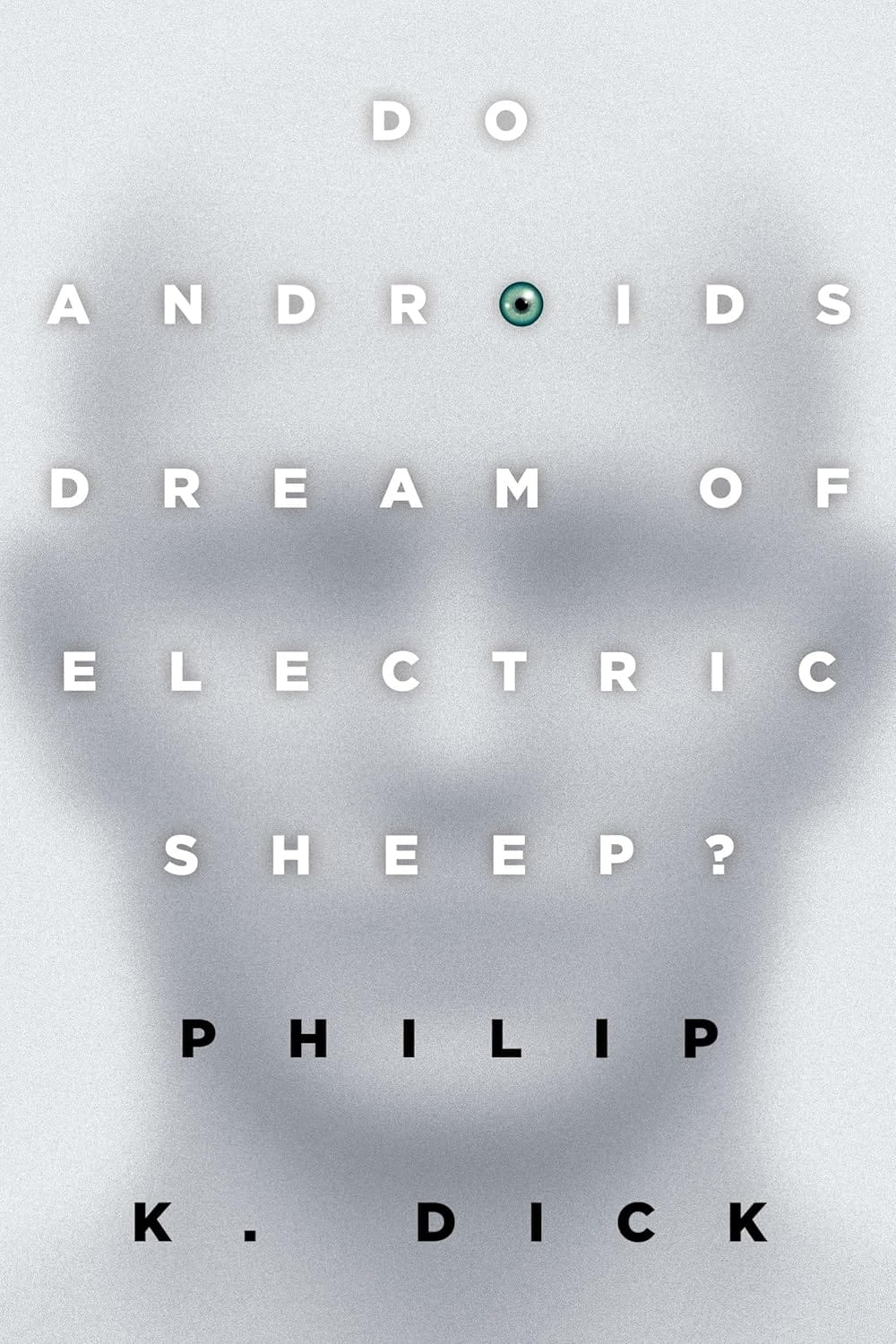The Timeless Questions of Empathy and Identity in "Do Androids Dream of Electric Sheep?"
Rediscover Philip K. Dick's "Do Androids Dream of Electric Sheep?", a sci-fi classic that questions humanity, empathy, and AI in a post-apocalyptic world. Explore its timeless themes and relevance today.

When Philip K. Dick's "Do Androids Dream of Electric Sheep?" was first published in 1968, it introduced a haunting vision of humanity's future that continues to resonate today.
This cornerstone of science fiction explores the moral and philosophical dilemmas of a world where the line between human and machine is perilously thin.
Known for inspiring the iconic film "Blade Runner," the novel offers a far deeper dive into questions about empathy, identity, and what it means to be human in a fractured society.
In this review, we'll rediscover this classic and reflect on its enduring relevance in an age increasingly defined by artificial intelligence.

Do Androids Dream of Electric Sheep?
One of The Atlantic’s Great American Novels of the Past 100 Years
By 2021, the World War has killed millions, driving entire species into extinction and sending mankind off-planet. Those who remain covet any living creature, and for people who can’t afford one, companies built incredibly realistic simulacra: horses, birds, cats, sheep. They’ve even built humans. Immigrants to Mars receive androids so sophisticated they are indistinguishable from true men or women. Fearful of the havoc these artificial humans can wreak, the government bans them from Earth. Driven into hiding, unauthorized androids live among human beings, undetected. Rick Deckard, an officially sanctioned bounty hunter, is commissioned to find rogue androids and “retire” them. But when cornered, androids fight back—with lethal force.
We All Dream
Set in a post-apocalyptic San Francisco in 2021, "Do Androids Dream of Electric Sheep?" paints a grim picture of Earth after World War Terminus. With the planet ravaged by radioactive fallout, humanity is encouraged to emigrate to off-world colonies, where lifelike androids serve as companions and laborers.
Rick Deckard, a bounty hunter, is tasked with retiring rogue Nexus-6 androids that have illegally returned to Earth. As he tracks these advanced, human-like machines, Deckard confronts his own moral boundaries and the unsettling possibility that empathy —humanity's defining trait— might not be unique to humans after all.
In a parallel storyline, John Isidore, a mentally impaired man living on the fringes of society, provides sanctuary to a group of fugitive androids. His interactions with them blur the lines between human and machine, adding emotional depth and complexity to the narrative.
Themes and Ideas
The novel's central question —what makes us human?— is explored through the lens of empathy. The Voigt-Kampff test, designed to differentiate humans from androids by measuring empathetic responses, is an allegory for the frailty of our moral judgments.
Deckard's journey forces readers to consider whether artificial beings, capable of complex emotions, deserve the same moral consideration as humans.
The theme of alienation is equally potent. Dick's world is one of profound isolation, where humans are estranged from nature, each other, and even their own emotions.
Mercerism, a religion based on shared suffering, serves as a counterpoint to this alienation, offering a glimpse of hope in the form of collective empathy.
Innovative Concepts and World-Building
Dick's world-building is nothing short of groundbreaking. The radioactive wasteland of Earth, the prevalence of artificial animals, and the unsettling perfection of Nexus-6 androids create a vivid and immersive setting.
The novel's speculative technologies, such as the empathy box and mood organ, feel both futuristic and eerily plausible, reflecting the anxieties of the 1960s while remaining prescient about today's technological landscape.
Unlike many post-apocalyptic narratives, Dick's vision is intimate rather than epic, focusing on the mundane yet profound struggles of its characters. This narrow focus makes the story's moral and philosophical questions all the more impactful.
Character Development
Rick Deckard embodies the classic science fiction archetype of the reluctant hero. His evolution —from a dispassionate bounty hunter to a man grappling with profound ethical questions— anchors the narrative.
Rachael Rosen, a Nexus-6 android who challenges Deckard's assumptions about humanity and emotion, is equally compelling. Her character blurs the boundaries between human and machine, adding depth to the story's central themes.
John Isidore, with his simple kindness and longing for connection, serves as a poignant counterpoint to the cold pragmatism of both humans and androids. His character reminds readers that humanity is as much about vulnerability and compassion as it is about intellect or physical form.
Conclusion
"Do Androids Dream of Electric Sheep?" is a masterful exploration of humanity's moral and existential boundaries.
Its thought-provoking themes and richly imagined world ensure its relevance even decades after its publication. In an era increasingly defined by artificial intelligence and technological advancement, Dick's questions about empathy, identity, and the ethical treatment of artificial beings feel more urgent than ever.
This novel's lasting appeal lies in its ability to challenge readers to think deeply about what it means to be human. As we stand on the brink of a future that Dick could only imagine, his cautionary tale remains a vital piece of science fiction literature, urging us to confront our own humanity before it is too late.

